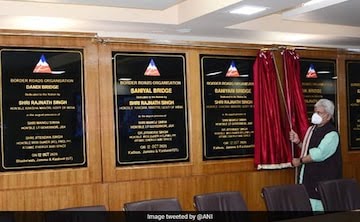A Bangladeshi man, who was plotting attacks against Hindus in his own country and planning to fight in Kashmir, has been arrested by Singapore’s security agencies which investigated the suspicious activities of 37 people as part of the heightened security measures in the city-state following recent terror strikes in Europe. In a statement, the Ministry of Home Affairs said that counter-terrorism investigations into the suspicious activities of 37 people in Singapore have been carried out after most of them posted on social media, inciting violence or stoking community unrest in the aftermath of the terror attacks in France.Of the 37 people, 14 are Singaporeans and 23 foreigners, mostly Bangladeshis, it said.”The 14 Singaporeans comprise 10 males and four females, and are aged between 19 and 62 years old. Most of them had, in response to the recent terror attacks in France, made social media postings which incited violence or stoked communal unrest,” the ministry said.As for the 23 foreigners, 16 of them, including 15 Bangladeshis and one Malaysian have been repatriated, it said. Seven foreigners are still under investigation, it added.One Bangladeshi man under investigation – identified as 26-year-old Ahmed Faysal – has been arrested under the Internal Security Act (ISA) following investigations into “terrorism-related activities”, the ministry said.He even bought foldable knives, which he claimed he would use for attacks against Hindus in Bangladesh, it said, adding that he was also willing to travel to Kashmir to fight against “perceived enemies of Islam”.Preliminary investigations by the Internal Security Department (ISD) showed that Faysal was radicalised and harboured the intention to “undertake armed violence in support of his religion”, the Channel News Asia reported, citing the statement issued by the Ministry of Home Affairs (MHA).Faysal had been working as a construction worker in Singapore since early 2017, and became radicalised in 2018 after “imbibing online propaganda on ISIS”, the statement said. He was arrested on November 2.”He was attracted to ISIS’ goal of establishing an Islamic caliphate in Syria and wanted to travel there to fight alongside ISIS against the Syrian government. He believed that he would be a martyr if he died while doing so,” it said.In mid-2019, Faysal shifted his allegiance to Hayat Tahrir Al-Sham (HTS), another militant group fighting to establish an Islamic caliphate in Syria.”He donated funds to a Syria-based organisation on the understanding that his donations would benefit the HTS’ cause in Syria,” the ministry said.”Faysal also actively shared propaganda promoting armed violence on social media accounts created under fictitious names.” Apart from ISIS and the HTS, Faysal also expressed support for other terrorist groups including Al-Qaeda and Al-Shabaab, the statement said.To prepare himself for an armed attack, Faysal watched firearms-related videos online. While Faysal is part of the 37, the ministry said he is not linked to the incidents in France.”While a handful of these individuals had commented on the same discussion threads on social media, the majority of the cases are not connected to each other,” said the ministry.There is no indication that any of them were planning attacks or protests in Singapore, it added.The Singapore Police Force (SPF) and the Immigration and Checkpoints Authority (ICA) have also enhanced their security measures and patrols.Attacks such as those in Saudi Arabia and Austria also signal a threat against French or Western interests, the ministry said. A “palpable anti-France climate” has developed in several countries, with large protests, calls for boycotts and an increase in terrorist rhetoric online.”In view of the deteriorating security situation, the Singapore Home Team has been on heightened security alert since early September and had also stepped up its security measures to pre-empt copycat attacks in Singapore,” the ministry said.Speaking at the 16th Religious Rehabilitation Group Seminar held at Khadijah Mosque on Tuesday, Law and Home Affairs Minister K Shanmugam said the “shape and nature” of the terrorism threat has changed since last year.While the Islamic State has lost much of its physical territory in several countries and had key leaders killed, they are now a covert network, he noted.”Its propaganda on social media continues to radicalise and inspire attacks around the world, including here in Southeast Asia,” the minister was quoted as saying by the channel.Counter-terrorism efforts in the region have reduced the number of attacks, but the terrorists are adapting, he said. Attacks in France and Austria also highlight that the threat of terrorism remains, he added.The ISD has “ramped up” counter-terrorism investigations into suspicious activity, individuals who are suspected of being radicalised as well as individuals whose conduct could “threaten Singapore’s communal harmony”, said the ministry.The Singaporeans and foreigners who have been investigated had “attracted security attention for suspected radical inclinations, or for making comments which incite violence, or stoked communal unrest”, it added.
Home Jammu Kashmir Bangladeshi man arrested in Singapore for plotting attacks against Hindus, planning to...


